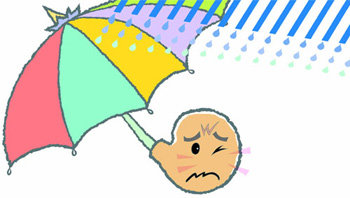Control Humidity and Make the Monsoon Season More Refreshing
Control Humidity and Make the Monsoon Season More Refreshing
Posted June. 27, 2005 09:16,

The monsoon season that starts with heavy rains after intense heat is expected to last for about a month. Although it doesnt rain every day during the rainy season, the air is always damp and the days murky. Furthermore, the temperature is not much different from midsummer, so people are prompt to be ill tempered even in small matters.
Discomfort Index Is Mood Index of Temperature and Humidity
Many people frown during the monsoon season just as the rainy sky, because the discomfort index is high. Devised in the U.S. back in 1957, the discomfort index displays the discomfort of people according to temperature and humidity in empirical fashion into numbers.
The discomfort index is derived from the wet-bulb temperature, which consists of temperatures from a thermometer and thermometer with wet gauze, taken usually around 3:00 p.m.
After being used in over 300 American cities in the summer of 1959, the discomfort index has been included in the weather forecast. However, the degree of discomfort felt by people over temperature and humidity was different and with opinions saying, Releasing the discomfort index only causes more discomfort, recently it is also being called the temperature-humidity index.
If Air Is Humid It Will Cause Discomfort Despite Lowering Temperature
The discomfort index is more affected by humidity than temperature. During the rainy season, the temperature might not rise high but it is uncomfortable due to the high humidity. That is because sweat does not evaporate well, causing the body not to cool off well.
In order to control body temperature, peripheral veins in the outer skin increase the flow of blood, resulting in increased sweat, but since it does not evaporate it only results in the loss of water and electrolyte. If such a condition persists, the flow of blood will decrease, reducing the supply of energy to muscles, leading to tiredness even while sitting still. Therefore, during the monsoon season it is recommended to drink sufficient water and eat mineral-rich fruits and vegetables.
In fact, when visiting countries with higher summer temperatures than Korea, such as southern Europe, one thinks that the air is more bearable than expected. That is because humidity is low and dries away sweat, lessening the feeling of stickiness. Under such weather, one can feel cool under a shadow.
When wearing gentlemens formal attire, some say that it is etiquette to wear long-sleeve shirts in summer, but that is only feasible in low-humidity southern Europe
Control Humidity
In order to reduce discomfort both temperature and humidity should be lowered. However, too much air conditioning will lead to side effects such as air conditioning sickness. The room temperature should be five to eight degrees Celsius lower than the outside temperature, somewhere in the range of 23 to 25 degrees, and it is advised to open the windows every one or two hours for ventilation.
It is also effective to use a fan and a small dehumidifier if an air conditioner is unavailable. Fifty to sixty percent room humidity is a suitable number. If there is too much moisture, it is suggested to turn on the boiler once every two to three days. Placing dehumidifying material that sucks damp odors and humidity out of the air will also help.
Reduced exposure to sunlight and activities will easily bring ones mood down. There are also people who will sleep too much and are languid for the rest of the day, and people that will gain weight due to increased appetite. Dont stay home because the weather is bad and just take a stroll somewhere near. Keep the room lights as bright as possible.
Light exercise and stretching, as well as a shower with not too cold water, will help one get a deep sleep. Be cautious to dry your body and hair well before sleeping. In oriental medicine, jobs tears (Coix lachrymajobi var. mayuen) is said to be effective in eliminating humid energies inside the body and is advised to be eaten during summer.
(Written with the assistance of Samsung Seoul Hospital Family Medicine Professor Yoo Joon-hyun, Mental Hospital Professor Yoon Se-chang, Severance Hospital Family Medicine Professor Kang Hee-chul, and Kyunghee Medical Center Oriental Medicine Acupuncture Professor Lee Jae-dong.)
TK Sohn sohn@donga.com







